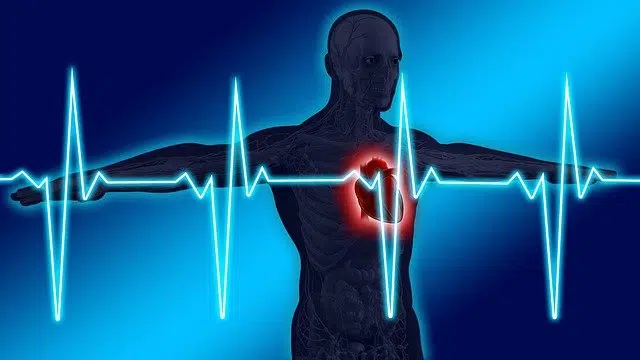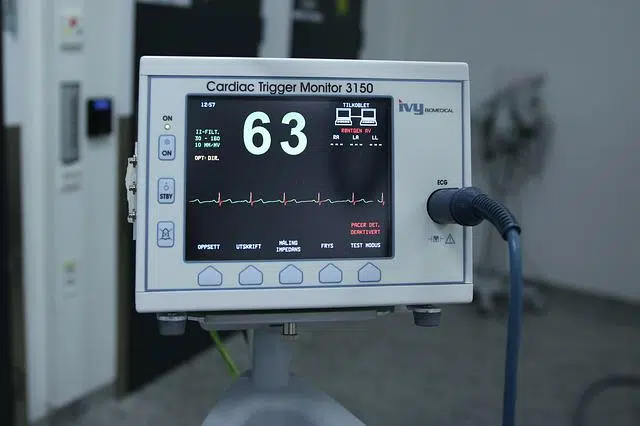
Heart rate reflects the number of heartbeats per unit of time.
From the Latin frequentia , frequency is the minor or major repetition of an event . This is the number of times a certain periodic process is repeated in a time unit. The greater the frequency, the greater the repetition or assiduity.
Cardiac , from the Latin cardiacus , is that belonging to or relating to the heart . This muscular organ, which in the case of humans is located in the thoracic cavity, is responsible for propelling blood .
The number of pulsations (heartbeats) per unit of time is known as heart rate . This frequency is usually expressed in beats per minute , the normal number of which will vary depending on the body's conditions (whether it is active or at rest).
Heart rate measurement
The pulse can be taken at different points on the body. The most common are the wrist, neck and chest, since the heartbeat can be felt more easily there. The pulse points most used to measure heart rate are those where the arteries are closest to the skin.
The correct way to feel the pulse is with the index and middle fingers (since the thumb has its own pulse). The fingers should exert gentle pressure in the area where the artery passes to, in this way, feel the pulsations.
Heart rate varies according to the characteristics of each person , since it depends on physical condition, age, genetics and environmental conditions, among other factors. A healthy adult has a heart rate of between 60 and 100 beats per minute, which can drop to 40 during sleep and rise to 200 with intense physical activity.

A healthy adult has a heart rate between 60 and 100 beats per minute, although these numbers vary depending on the activity you are doing.
How to take care of cardiovascular health
It is known that heart disease represents one of the most common causes of death worldwide; In many countries it is at the top of the list of non-violent deaths. For this reason, it is necessary to develop certain cardiovascular health care habits, some of which are detailed below:
* take care of your diet : inadequate nutrition is directly related to heart attacks, especially due to the abuse of saturated and transgenic fats. Some of the things that should be avoided are excess salt and pastries, and the consumption of red meat. Many doctors recommend opting for a balanced vegetarian diet, making sure you acquire all the necessary nutrients and vitamins;
* exercise : although this is usually associated with image, exercise is in principle beneficial for our health. Experts say that thirty minutes of any physical activity a day is enough; Although this does not require a great effort, the most important and difficult thing to achieve is consistency;
* avoid stress : we cannot always avoid problems, since in many cases it depends on their resolution that we reach balance . However, it is very important that we analyze the true seriousness of each incident, avoiding magnifying them, and that we look for the best way to solve them, trying not to get distressed if this cannot be achieved immediately;
* control weight : similar to exercising, it is normal to believe that being thin matters to those who care about aesthetics, but this is another misinterpretation. Obesity has a close relationship with heart problems. Some studies indicate that just 10% of weight can make a difference in the health of our heart;
* sleep well : for many, this is an almost impossible goal to achieve. We live in an era of endless rush, of obligations that stun us throughout the week, of accounts to pay, of economic crisis... Everything leads us to become saturated, to waste our time and to forget one of the fundamental needs of our heart. : rest.
